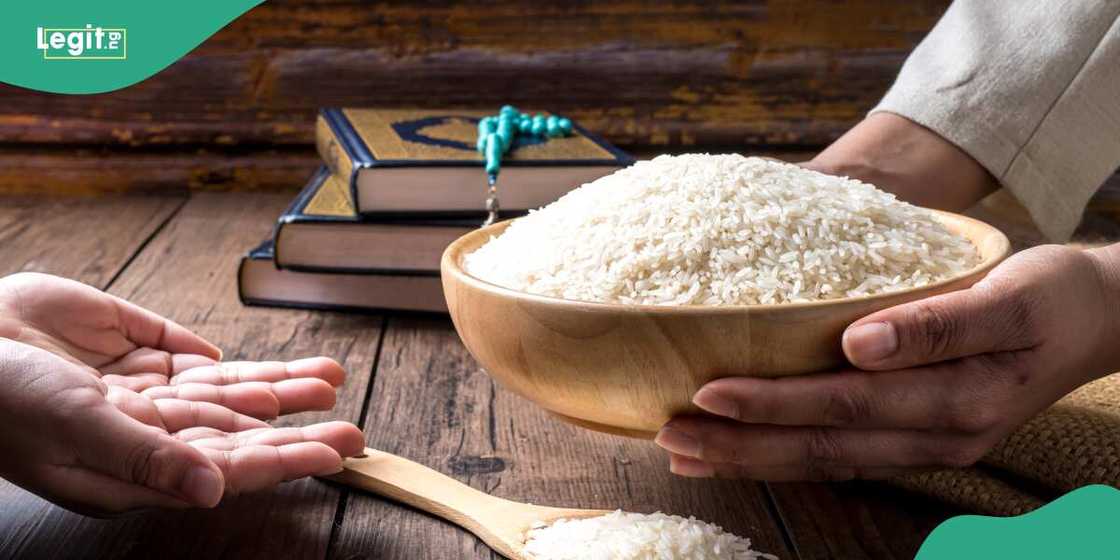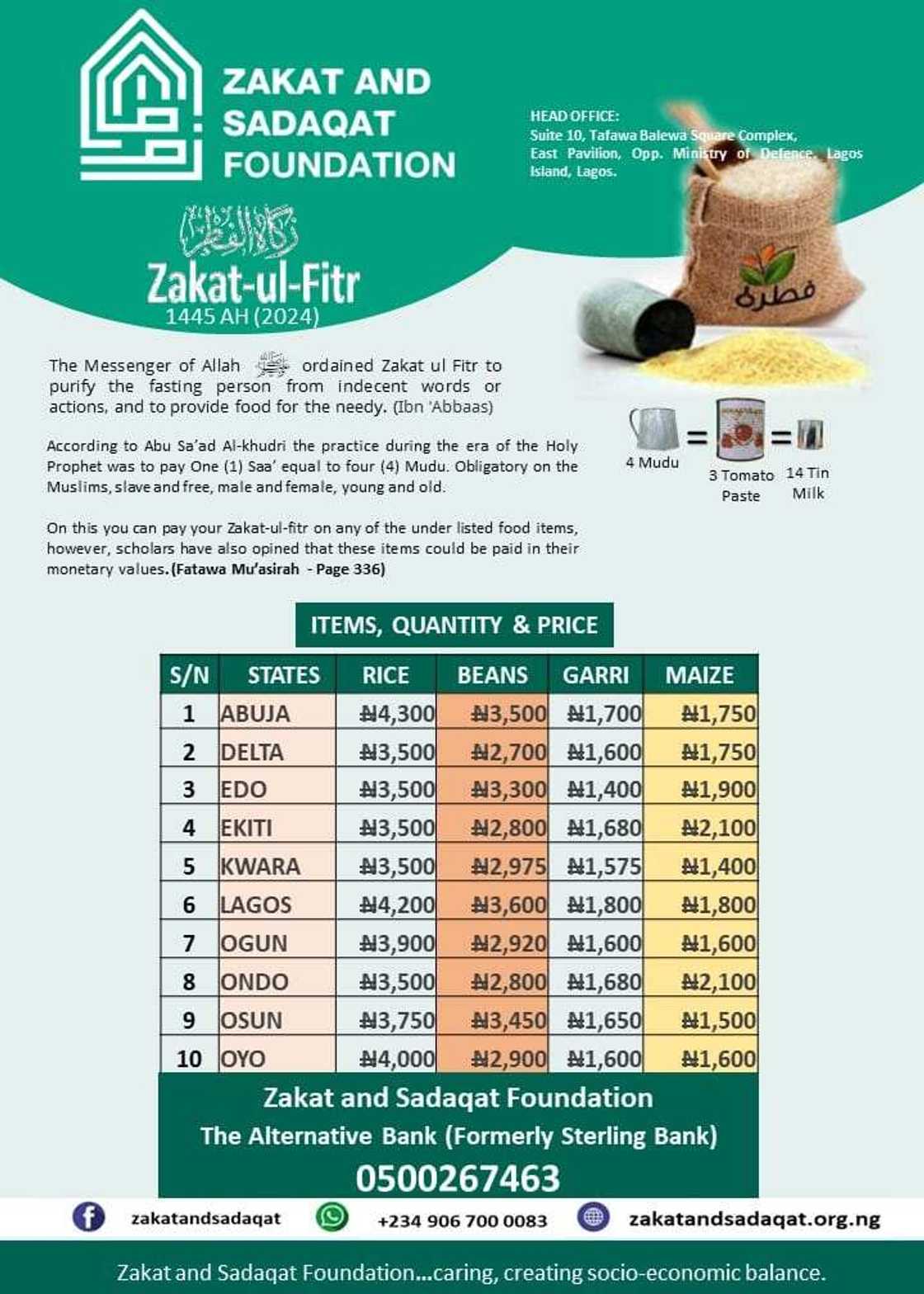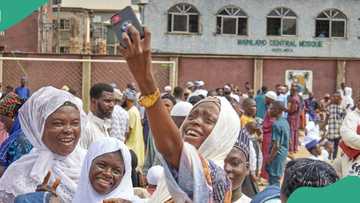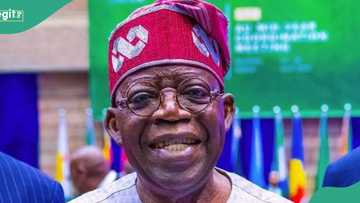Eid-el-Fitr 2024: Significance of Zakat-ul-Fitr and How It is Paid
Legit.ng journalist Ridwan Adeola Yusuf has over 9 years of experience covering public journalism and religious activities.
PAY ATTENTION: The 2024 Business Leaders Awards Present Entrepreneurs that Change Nigeria for the Better. Check out their Stories!
FCT, Abuja - In Islam, Zakat-ul-Fitr, also known as Sadaqat-ul-Fitr or Zakat-ul-Fitrah, is a form of alms-giving which the religion considers required of every able Muslim at the end of the holy month of Ramadan.
The purpose of Zakat-ul-Fitr — which is an obligatory sunna (Prophet Muhammad's way of life and legal precedent) — is to enable poor people to celebrate Eid-el-Fitr happily.

Source: Getty Images
What is the significance of Zakat-ul-Fitr?
- Zakat-ul-Fitr: To “gratify” the poor
All Muslim scholars agree with the Prophet Muhammad’s statement to “gratify” the poor.

Read also
BREAKING: Katsina declares Friday work free day to mark Eid el Fitr festival, details surface
This makes the first two categories (the poor and the needy) specified for Zakat a priority, making them legitimate recipients of Zakat-ul-Fitr.
While you can give your entire Zakat to the poor, most scholars are against the practice of dividing a single payment among many recipients because it defeats the purpose. When the amount is too small, poor people who are struggling to feed themselves and their families will not be able to enjoy a good meal on Eid.
2. Zakat-ul-Fitr: Reminder about Allah's blessings
Zakat-ul-Fitr reminds Muslims of the fact that whatever wealth they may possess is due to the blessings of Allah, and as such, it is to be spent according to His commands.
Ultimately, Zakat-ul-Fitr serves as a reminder to wealthy Muslims, most especially, that they have to share what they have with those in need.
3. Zakat-ul-Fitr, an act of worship
Zakat is mandatory for all Muslims in most countries and is considered to be a form of worship.
Giving money to the poor is said to purify yearly earnings.
How is Zakat-ul-Fitr paid?
Zakat-ul-Fitr must be given before Eid prayer, prior to the end of the month of Ramadan. The latest it can be paid is before the Eid prayer begins so that those in need can benefit in time for Eid.
Zakat-ul-Fitr is paid per person and is a fixed amount determined by Muslim legal scholars.
The amount for Zakat-ul-Fitr varies depending on the region and the price of food. In most countries, it is equivalent to the cost of one meal or one kilogramme of rice or wheat. The amount is usually paid on behalf of every household member, including children and the elderly.
Zakat-ul-Fitr can be paid in cash or other ways, such as food or clothing.
In Nigeria, a reputable non-governmental organisation (NGO), Zakat and Sadaqat Foundation, recently shared the items, quantity, and price of payable Zakat-ul-Fitr in the country.
The organisation enumerated the prices based on province. 10 Nigerian states were listed, with the majority of them being southwest states. Check it out below:

Read more on Eid-el-Fitr:
- When is Eid el Fitr 2024 in Nigeria and how is it celebrated?
- Saudi Arabia announces Eid-el-Fitr 2024 date
- President Tinubu leaves Abuja for Lagos to celebrate Eid-el-Fitr
Sultan declares date for Eid-el-Fitr 2024
Earlier, Legit.ng reported that the Sultan of Sokoto, Sa'ad Abubakar, announced that the 2024 Eid-el-Fitri will be on Wednesday, April 10.
The Sultan, who doubled as the president general of the Nigeria Supreme Council of Islamic Affairs (NSCIA), disclosed that the reason was that the national moon sighting committee could not sight the new moon across the country.
Professor Sambo Junaidu, the chairman of the advisory committee on religious affairs of the sultanate council, said the council accepted the report of the moon sighting committee.
PAY ATTENTION: Unlock the best of Legit.ng on Pinterest! Subscribe now and get your daily inspiration!
Source: Legit.ng




